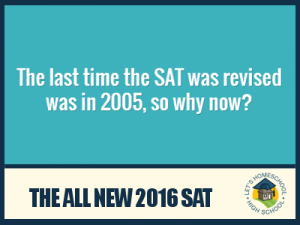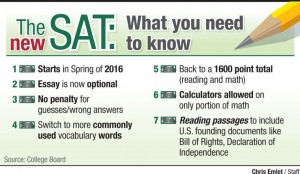June 2nd, 2015
As the SAT/ACT 2014-2015 testing season hurtles towards completion, time to take stock of your preparation. Attended every session of prep class? Check. Practice tests diligently completed? Check. But much more should be done to ensure you get the best possible score on test day. You need to attend to your body and mind by sleeping well, keeping hydrated and eating healthy. Each is supported by copious research and each will improve your score.
We all know teenagers are chronically sleep deprived. They go to bed late, get up early for school, and binge sleep on weekends. Not a healthy pattern, especially heading into a SAT or ACT. One site on sleep puts it bluntly, “Well-rested brains do a bunch of tasks better than sleepy brains. In tests of response time to stimuli, agility, ability to remember new material and to perform things like mental arithmetic, the superiority of the rested brain has been shown again and again.”1 Don’t believe the research? Every year we have students sign up for SATs and ACTs not realizing their prom is the night before. Regardless of how they practiced, their scores range from abominable to abysmal. A week or two before the test, shift your sleeping patterns. Go to bed at a more reasonable hour and wake up at least ninety minutes before the scheduled time of the test. You’ll find your mental abilities sharpest right when it counts, when the proctor says “Go!”
Though the exhortation to drink eight glasses of water a day turned out to be baseless, keeping hydrated is important. When I went to high school in Western New York in the 1980s, carrying a water bottle around the halls was unheard of. Research in the 1990s changed this, and now water bottles are ubiquitous sights in classrooms. Why? Adequate hydration has been proven to help us better handle stress and “a drop of just 2% in body water causes short term memory problems and significant difficulties with concentration.”2 Make a habit of bringing a water bottle to school, drink water the morning of the test and bring a bottle of water to the test so you can hydrate on breaks.
And speaking of morning, do not skip breakfast. It’s almost cliché to say that breakfast is the most important m eal of the day, but research has shown this to be true many times over. The statistics are eye opening. Students who eat breakfast regularly perform better academically, have increased attendance and less often visit the nurse’s office. Students who eat breakfast regularly also, on average, score more than 17% higher on math tests and are 20% more likely to graduate. 3 Common sense tells us that eating healthier foods leads to better physical and mental health. Eat better in the weeks leading up to the test and do not skip breakfast. Since you’re already getting up earlier, you’re sure to have the time.
eal of the day, but research has shown this to be true many times over. The statistics are eye opening. Students who eat breakfast regularly perform better academically, have increased attendance and less often visit the nurse’s office. Students who eat breakfast regularly also, on average, score more than 17% higher on math tests and are 20% more likely to graduate. 3 Common sense tells us that eating healthier foods leads to better physical and mental health. Eat better in the weeks leading up to the test and do not skip breakfast. Since you’re already getting up earlier, you’re sure to have the time.
Practice tests and tactics should only make up on part of your prep. Sleep, hydrate and eat well to make sure you’re at you very best on test day. Better yet, make them life-long habits.
1. “Sleep and Learning.” The Relationship Between. Web. 2 June 2015.
2.Roberts, Roger. “Benefits of Adequate Hydration Are Mind Boggling.” Streetdirectory.com. 2015. Web. 2 June 2015.
3. Bakies, Karen. “The Breakfast Benefit: Why Schools Should Make Morning Meals a Priority.” US News. U.S.News & World Report, 20 Oct. 2014. Web. 2 June 2015.



 eal of the day, but research has shown this to be true many times over. The statistics are eye opening. Students who eat breakfast regularly perform better academically, have increased attendance and less often visit the nurse’s office. Students who eat breakfast regularly also, on average, score more than 17% higher on math tests and are 20% more likely to graduate.
eal of the day, but research has shown this to be true many times over. The statistics are eye opening. Students who eat breakfast regularly perform better academically, have increased attendance and less often visit the nurse’s office. Students who eat breakfast regularly also, on average, score more than 17% higher on math tests and are 20% more likely to graduate. 



 of the SAT, College Board is trying to promote excellent classroom work and accelerate students who are behind. To this end, the company has aligned the new SAT with with the Common Core curriculum. In fact, the new president of College Board, David Coleman, was a key player in creating the Common Core standards. More concretely, College Board will support best practice in classrooms by working with teachers and college faculty to design course frameworks and modules for use in grades 6–12.
of the SAT, College Board is trying to promote excellent classroom work and accelerate students who are behind. To this end, the company has aligned the new SAT with with the Common Core curriculum. In fact, the new president of College Board, David Coleman, was a key player in creating the Common Core standards. More concretely, College Board will support best practice in classrooms by working with teachers and college faculty to design course frameworks and modules for use in grades 6–12. 